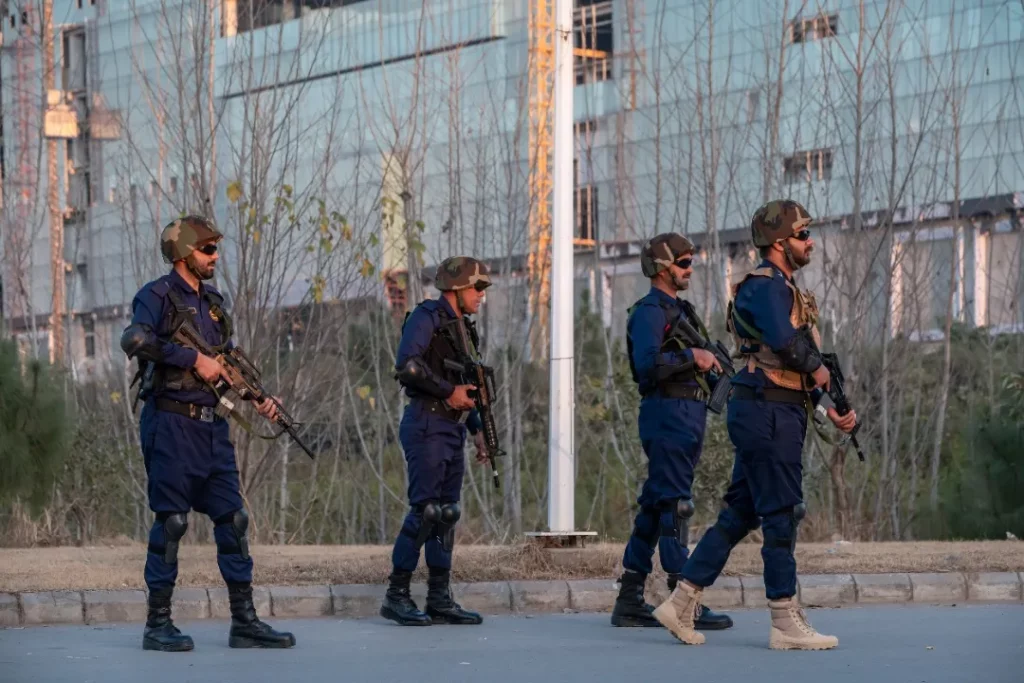What are the Training Objectives of a Security Guard
What are the Training Objectives of a Security Guard
These folks are absolutely right! Security guards are the unsung heroes of any establishment, whether it’s a large concert venue or just your office building. They’re there to keep us safe and ensure everything runs smoothly. But in reality, their job is more than just standing or patrolling around and doing a watch.
The Training Objective of a Security Guard is a serious matter, and this training defines their professionalism. Here is the breakdown of the skills they master during their training.
1. Knowing the Law and Its Limits
The very first thing a security guard has to grasp is the law. They need to know their rights, but also their boundaries. It’s about operating smart and legally.
- Guards must be certified, and this isn’t just a piece of paper; it’s proof they’re actually qualified. They need the right certification to ensure they do the job correctly and legally.
- Guards need to know exactly when they are allowed to step in and when they have to back off and call the police. They can’t just arrest people or use force whenever they feel like it.
- If things escalate, they might need to use force, but it has to be necessary and proportional—and, most importantly, legal. They learn the precise guidelines for this.
- If something goes down, they have to write it up. A clear, accurate incident report could be the key to an investigation later on.
The bottom line? They must know the legal rules cold, which keeps them (and the company they work for) out of hot water.
2. Handling Emergencies
Emergencies don’t wait for permission, and security guards are often the very first people on the scene. They train for the unexpected:
- Whether someone faints or has a medical crisis, guards are trained in First Aid and CPR. They can provide vital assistance until paramedics arrive.
- If a fire starts, they need to know how to grab a fire extinguisher, shut down systems, and safely guide hundreds of people to the exits.
- Earthquakes, floods, severe storms—you name it. They learn the protocols for helping people during any kind of natural disaster.
- At larger events or gatherings, a simple misunderstanding or miscommunication can lead to a stampede, and guards are trained in crowd management and de-escalation techniques to prevent or mitigate potential stampedes or fights.

3. Staying Alert and Noticing Everything
A massive part of being a good guard is simply paying attention. They are trained to observe and notice things in a way ordinary people can’t, as they are:
- They’re taught how to actively monitor surveillance cameras and recognize subtle cues that indicate trouble is brewing.
- Regular patrols, whether on foot or in a vehicle, are designed to keep them informed and maintain a visible presence.
4. Communication
In the event of any unfortunate incident, security guards are the primary point of contact; therefore, all security personnel receive essential training in effective communication.
- They need to be able to communicate with anyone—from a panicked visitor to a challenging individual—with a clear, calm, and professional tone.
- If things are getting heated, they are trained to de-escalate the situation using verbal techniques, diffusing the tension without making things worse.
- These professionals not only prevent trouble but also assist people by providing them with directions while ensuring their safety.
5. Access and Patrols Controlling
A huge part of the job is ensuring that only the right people are where they’re supposed to be:
- They learn how to structure their patrols to ensure all areas are checked and there are no gaps in security because coverage is key.
- They’re responsible for checking IDs, badges, and guest lists to control who enters and exits the property, as it is required for security
- Emergency Entry: They need to manage access for emergency services, ensuring police or fire crews can get where they need to go quickly while keeping everyone else safe.
6. Writing Reports and Documenting Everything
A guard’s shift isn’t over until the paperwork is done. Documentation is critical for legal reasons and accountability:
- If anything happens, they must write a clear, objective, and accurate report of the incident. These reports are often used in legal proceedings, so they have to be flawless.
- They maintain continuous records of everything, including patrols, visitor entries, and system checks. This creates a detailed record of their accountability.
Final Verdict: What Makes a Security Guard Professional?
While most training covers those core skills, there are a few areas that need to be beefed up to prepare them for the modern world:
- Cultural Awareness: Guards work in incredibly diverse environments. Understanding different cultures and backgrounds enables individuals to approach and manage situations with greater respect and better judgment.
- Modern Tech Skills: Everything is becoming digital. Guards require training on technologies such as AI-driven cameras, drones, and advanced access control systems.
- Mental Health First Aid: They should be able to recognize signs of mental distress in the public they serve and also know how to manage their own stress.
- Digital Defense: With cyberattacks on the rise, they need the basics of cybersecurity to protect the physical security systems they rely on.
By adding these skills, we turn a well-trained guard into a truly well-rounded, future-proof professional. Training isn’t just about learning emergency responses; it’s about preparing security guards to handle any situation with confidence, professionalism, and smart judgment.



